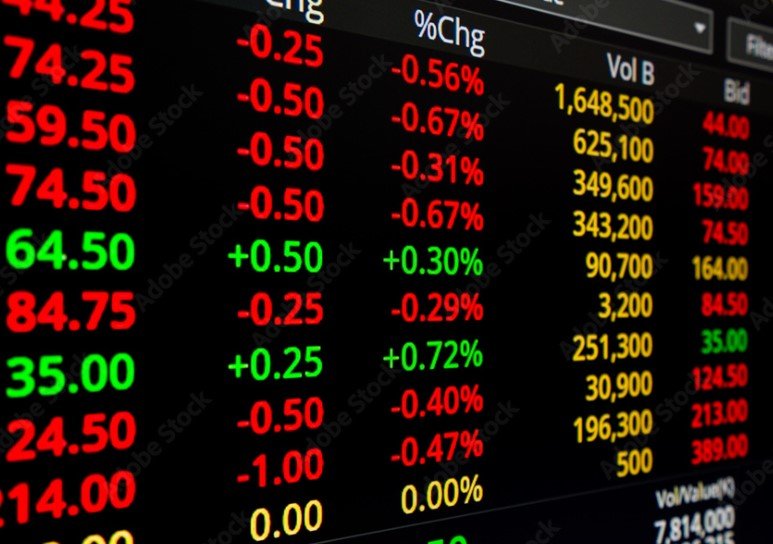Hong Kong stocks soared more than 2 percent on August 25, 2025, nearing a four year peak, driven by a strong rally in technology shares amid global market optimism. This surge, led by the Hang Seng Index climbing to 25,851 points, reflects investor confidence boosted by signals of potential U.S. Federal Reserve rate cuts and robust growth in AI and electric vehicle sectors.
Key Drivers Behind the Rally
Markets across Asia Pacific showed solid gains on Monday, with Hong Kong at the forefront. The Hang Seng Index rose 2.02 percent from its previous close, marking its highest level since 2021. Tech stocks played a major role, as investors poured money into companies benefiting from advancements in artificial intelligence and semiconductors.
This uptick comes after Federal Reserve Chair Jerome Powell hinted at possible interest rate reductions starting next month during his speech in Jackson Hole, Wyoming. Such moves could ease borrowing costs worldwide and encourage capital flows into emerging markets like Hong Kong. Analysts note that declining deposit rates in China might also push more funds toward equities, sustaining the momentum.
In addition, positive sentiment around Hong Kong’s push to become an AI hub has fueled the rally. Recent government pledges to invest in technology infrastructure have drawn attention to local firms innovating in this space.
Tech Sector Leads the Charge
The Hang Seng Tech Index jumped 3.11 percent, outperforming the broader market. Electric vehicle maker Nio saw its shares skyrocket by 14.73 percent, while semiconductor firm ASMPT gained 6.74 percent. These gains highlight the sector’s strength amid rising demand for AI driven technologies and electric vehicles.
Other tech giants contributed as well. Property developers with tech ties, like those expanding into smart city projects, also climbed, with some up over 8 percent. This reflects a broader trend where AI applications are transforming industries from real estate to manufacturing.

Investors are optimistic about structural factors, such as strong electric vehicle sales and massive support for AI development. For instance, recent rollouts of advanced AI models in China have outperformed global competitors, adding to the excitement.
Here is a quick look at top performers in the Hang Seng Tech Index:
- Nio: Up 14.73 percent on strong EV demand.
- ASMPT: Gained 6.74 percent amid semiconductor boom.
- Other notables: Alibaba and Tencent saw rises of over 6 percent each, driven by AI investments.
Broader Asia Pacific Market Performance
Gains extended beyond Hong Kong. Mainland China’s CSI 300 index advanced 1.39 percent, hitting a 37 month high for its fourth straight session. This follows a pattern of inflows as investors shift from bonds to stocks amid lower interest rates.
In Taiwan, the Taiex index rose 2.47 percent, boosted by tech heavyweights in the chip industry. South Korea’s Kospi added 1.14 percent, with the small cap Kosdaq up 1.92 percent, showing broad based strength.
Japan’s markets were more subdued, with the Nikkei 225 up just 0.27 percent and the Topix at 0.1 percent. Meanwhile, Australia’s S&P/ASX 200 climbed 0.22 percent, crossing the 9,000 mark for the first time.
India’s benchmarks also edged higher, with the Nifty 50 up 0.35 percent and the BSE Sensex at 0.23 percent. These movements align with global trends, including U.S. tariff adjustments that could benefit Asian exporters.
Economic Factors and Future Outlook
Several economic indicators support this rally. Maturing time deposits in China, combined with falling rates, are expected to redirect funds into stocks. Goldman Sachs analysts predict this could sustain gains, especially if U.S. rate cuts prompt capital rotation from American to Chinese markets.
Trade dynamics play a role too. Recent modifications to U.S. tariffs on countries like Japan and South Korea have eased some pressures, allowing Asian markets to breathe easier. In Hong Kong, the push for AI leadership, including new models rivaling global leaders, adds long term potential.
However, challenges remain. Investors are watching Singapore’s July consumer price index, expected to rise 0.6 percent year over year, which could influence regional inflation views.
To illustrate recent market trends, here is a table of key Asia Pacific indices performance on August 25, 2025:
| Index | Percentage Change | Closing Value |
|---|---|---|
| Hang Seng | +2.02% | 25,851 |
| Hang Seng Tech | +3.11% | Not specified |
| CSI 300 | +1.39% | Not specified |
| Taiex | +2.47% | Not specified |
| Kospi | +1.14% | Not specified |
| Nikkei 225 | +0.27% | Not specified |
| S&P/ASX 200 | +0.22% | Over 9,000 |
Potential Impacts and Investor Sentiment
The rally has sparked discussions on whether this marks a sustained bull run. Social media buzz, including posts from market watchers, highlights optimism around AI and EV growth, with some predicting further upsides. For example, valuations in Hong Kong remain attractive compared to historical averages, drawing in value investors.
Yet, risks like geopolitical tensions or unexpected inflation could temper enthusiasm. Balanced views suggest monitoring U.S. policy shifts closely, as they directly affect Asian trade.
Overall, this surge provides a boost to investor confidence, potentially signaling a recovery phase for Asia Pacific economies.
What do you think about this market rally? Share your thoughts in the comments below and spread the word if you found this analysis helpful.
